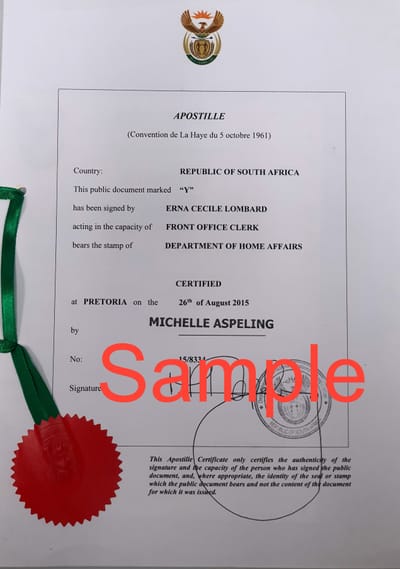Hague Apostille Convention
What is the Hague Apostille Convention?
The Convention has over 110 Contracting Parties and has become one of the most widely applied multilateral treaties in legal cooperation, with several million Apostilles issued each year.
The need to produce public documents abroad has increased alongside cross-border mobility and interactions at the global level. In many cases, to ensure the authenticity of these public documents, they are subject to the costly and time-consuming process of legalisation, often requiring multiple steps and involving multiple authorities.
The Apostille Convention replaces the traditional and cumbersome legalisation process with a single formality: issuing a certificate called an Apostille. An Apostille, issued by the State of origin, authenticates the source of a public document to be presented abroad in another Contracting Party. This simplified framework facilitates the circulation of public records internationally for individuals, families, and commercial operators.
Document Legalisation Services provides document legalisation services from commercial offices in Pretoria, utilising apostille certificates, authentications, and embassy legalisations for all South African documents. We offer a comprehensive document legalisation service, which includes all relevant attendances.
ORDER AND GET A QUOTE ONLINE
Ordering and quoting online is simple and safe. Complete the secure online form to get a no-obligation quotation with a time estimate for completion. You can use the secure incorporated facility to upload any documents you would like us to check.


OUR TEAM IS HERE TO ANSWER YOUR QUESTIONS
CONTACT US TODAY AND WE WILL REPLY WITHIN 24 HOURS
Origin of the Word Apostille - Hague Apostille Convention
The word “Apostille” (pronounced a-pos-TEE, not a-pos-TEAL or a-pos-TILL-ee) is of French origin. It comes from the French verb “apostiller”, which derives from the old French wordpostille meaning“annotation”, and before it the Latin word postilla, a variation of the word postea, which means “thereafter, afterwards, next” (Le Nouveau Petit Robert: Dictionnaire alphabétique et analogique de la langue française, Paris, 2004).
Usage of the words “Apostille” and “apostiller” dates back to the end of the 16th century in France. Thus, an Apostille consisted of an annotation in the margin of a document or at the end of a letter.During the negotiations on the Hague Apostille Convention, the term “Apostille” was preferred because of its novelty. According to the reporter:
“Following a discussion on terminology [in the French language], the word Apostille have been preferred because of its appealing novelty.” The meanings of the word Apostille described above are still valid today.
Apostille - Dictionary Meaning
1 archaic : a marginal note
2 : a document used in international law that is issued by a government in accordance with the Hague Convention and that certifies that another document has been signed by a notary public. History and Etymology for apostille. Middle French, from apostiller to add notes, ultimately from Medieval Latin postilla note, probably from post illa (verba textus) after those (words of the text)
What does a South-African Issued Apostille look like?
Sample Apostille Certificate South-Africa
These variations may be in design, size and color as well as in any additional elements mentioned outside the box that holds the 10 numbered standard informational items.
Such variations in appearance are not a basis for refusal of an Apostille by the intended recipient! Hereunder a sample of an South-African Apostille. Also see our Examples Gallery for more images.



